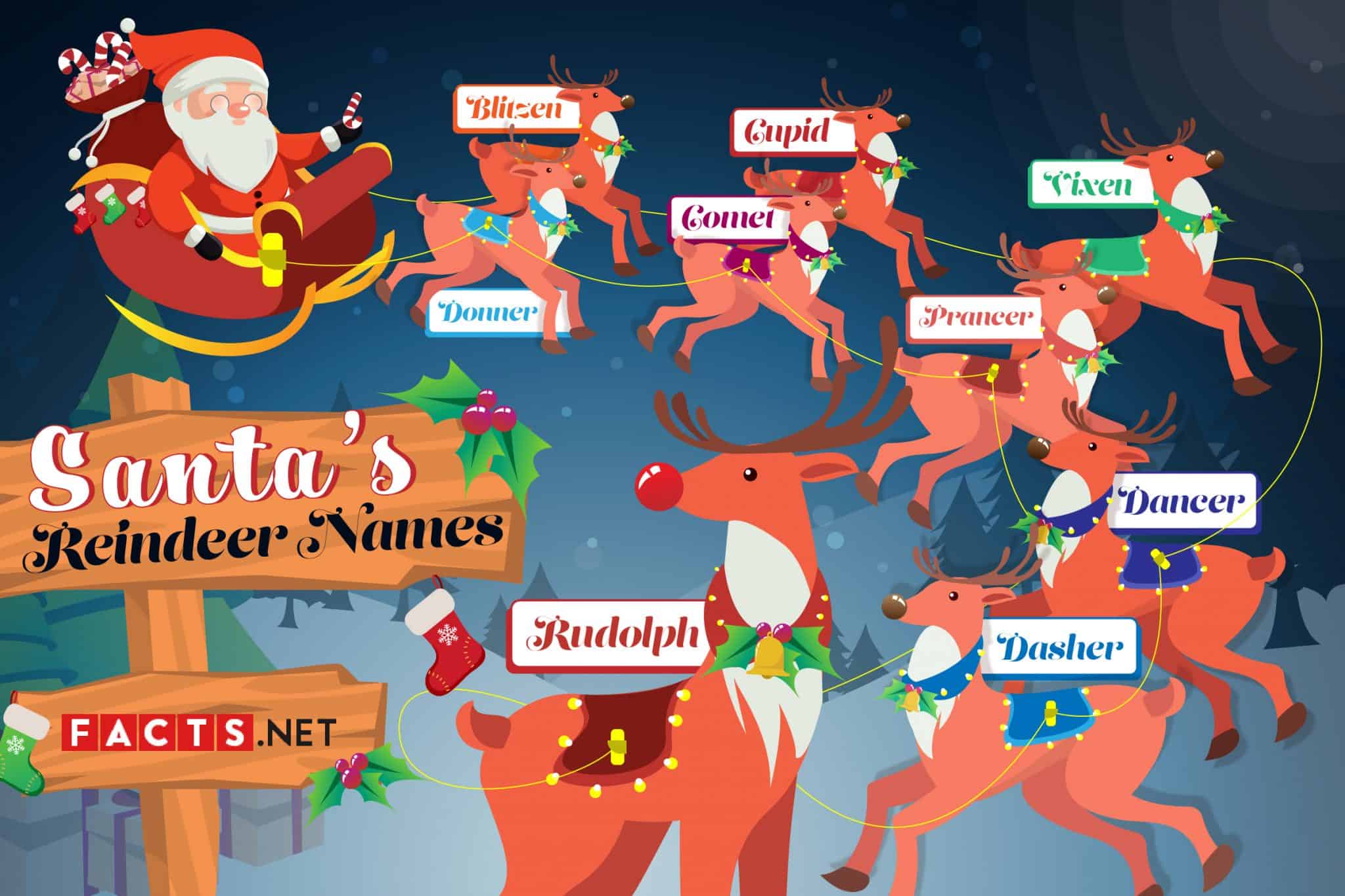The Magical Tale Behind Santa's Reindeer Names: Unveiling the Enchanting Myth
An Introduction to the Enchanted Names
In the enchanting realm of Christmas folklore, Santa's reindeer hold a special place, transporting the jolly old elf and his gifts to children worldwide. Each reindeer bears a unique name, imbued with history and symbolism that adds to the charm of the Christmas tradition. This comprehensive analysis delves into the complexities of Santa's reindeer names, exploring their origins, meanings, and the magical story behind them.
Unraveling the Origins: A Historical Tapestry
The origins of Santa's reindeer names can be traced back to various sources. Some names, such as "Dasher" and "Dancer," were inspired by the 1823 poem "A Visit from St. Nicholas" by Clement Clarke Moore. Others, like "Comet" and "Cupid," were mentioned in the 1939 Christmas song "Santa Claus is Comin' to Town."
However, the most significant influence on the reindeer names comes from Scandinavian mythology. In Norse folklore, the god Odin rode an eight-legged horse named Sleipnir, which served as the inspiration for Santa's reindeer. Additionally, the names "Donner" and "Blitzen" are derived from German words meaning "thunder" and "lightning," reflecting the speed and power of Santa's team.
The Meanings Behind the Names: A Poetic Symbolism
Each reindeer name carries a unique meaning that enhances the enchanting nature of the Christmas myth. "Dasher" evokes speed, while "Dancer" represents agility and grace. "Prancer" suggests a playful spirit, and "Vixen" embodies cleverness and cunning. "Comet" symbolizes the celestial bodies that guide Santa's journey, and "Cupid" represents the love and joy associated with Christmas.
The names "Donner" and "Blitzen" reflect the thunderous power of Santa's sleigh, while "Rudolph" (added later in the 20th century) embodies the spirit of resilience and triumph over adversity.
The Ninth Reindeer: Rudolph's Exceptional Journey
Rudolph, the ninth and most famous reindeer, has a unique story that sets him apart from his companions. Created in 1939 by Robert L. May for the department store Montgomery Ward, Rudolph was initially ridiculed for his glowing red nose. However, he proves his worth when he leads Santa's sleigh through a blizzard on Christmas Eve, saving the day.
Rudolph's name, meaning "famous wolf," reflects his exceptional nature and the challenges he overcame. His story has become a beloved part of Christmas lore, inspiring countless children and adults alike.
Perspectives on the Changing Reindeer Roster
Over the years, there have been some variations in Santa's reindeer team. In some cultures, "Olive" or "Olive, the Other Reindeer" is included, while others have mentioned "Flasher" or "Flicker." These variations reflect the evolving nature of the Christmas myth and the different cultural interpretations of Santa's magical journey.
Some critics have argued that the addition of Rudolph and other reindeer dilutes the original symbolism of the eight reindeer, representing the Norse gods' connection to the eight cardinal directions. However, the evolving roster highlights the adaptability and inclusivity of the Christmas tradition, embracing new characters and stories while preserving the core elements of the myth.
Conclusion: The Enduring Magic of Christmas Tradition
The names of Santa's reindeer are more than just simple labels; they are intricately woven into the fabric of Christmas folklore. Each name carries a unique meaning, representing speed, grace, power, love, and triumph. Together, they create a magical tapestry that captures the enchantment and wonder of the Christmas season.
Whether one prefers the traditional eight reindeer or embraces the expanding roster, the names of Santa's reindeer continue to ignite the imaginations of children and adults worldwide. They remind us of the magic of Christmas, the importance of resilience, and the enduring power of storytelling.
Read also:
Pacers Shatter Warriors' Unbeaten Run With Convincing Victory
Milwaukee Bucks Shoot Down San Antonio Spurs, Dominating With Precision In 105-121 Victory
Three Reasons Why Knicks Made Blockbuster Trade

